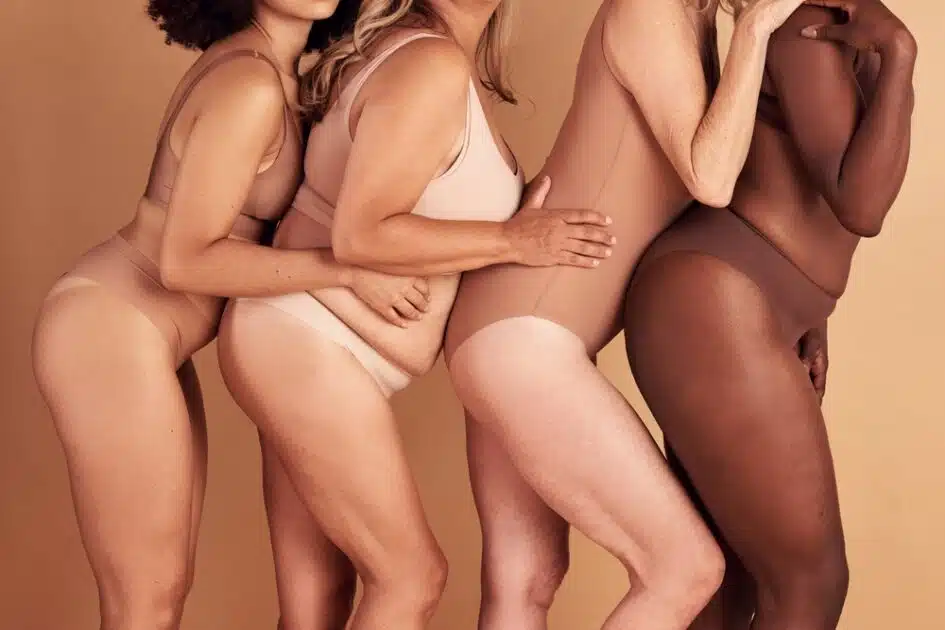Body image, a complex psychological construct, is the mirror we look at to gauge our physical attractiveness and appeal.
It’s not merely a superficial assessment but rather a comprehensive self-perception that ranges from positive—marked by satisfaction and acceptance—to negative, often tainted by dissatisfaction and self-criticism.
Among these factors, our upbringing and family environment wield a substantial influence. The beliefs, attitudes, and biases about body image that we’re exposed to during our formative years have a lasting impact on our self-perception. Likewise, societal pressures and norms significantly contribute to our body image.

The societal “ideal body,” often showcased as a standard of beauty, can profoundly impact how we perceive our bodies, leading us to either acceptance or a constant desire for transformation.
Decoding Healthy and Unhealthy Body Image
Healthy body image is not confined to merely believing you are visually appealing but also encompasses the contentment you find in your perceived physical form.
However, individuals with an unhealthy body image may believe they are visually appealing yet harbor distaste for specific aspects of their physical appearance.
Often, there’s a correlation between self-image and society’s perception of attractiveness. The symptoms of a negative body image may include:
- Social avoidance
- Concealment of perceived physical flaws
- Use self-deprecating language, such as “I am hideous, ugly, repulsive.”
- Seeking constant validation regarding physical appearance
- Engaging in frequent cosmetic procedures or surgeries
- Comparing self constantly with others
- Obsession with mirrors or excessive photography
- Perception of being physically unattractive or repulsive
Strategies for Enhancing Body Image
Negative body image can develop early in life and profoundly impact one’s lifetime. Despite subjective beauty standards, everyone deserves the satisfaction of loving their body.
In our modern, digitally connected world, the media inundates us with unrealistic depictions of physical attractiveness.
As we allow social platforms to define our worth based on these superficial standards, those unable to emulate these standards may suffer from mental health issues like depression.
Consequently, the journey to a healthier body image is deeply personal. It starts with acknowledging the myriad ways our bodies serve us beyond aesthetics.
Arms providing comfort, hands communicating, and ears enabling us to connect with our surroundings are all reasons to be grateful. As we learn to appreciate these blessings, we can initiate a shift towards a more positive body image.
It’s also important to understand that societal beauty standards are fluid and subject to cultural and historical shifts, reinforcing the subjectivity of attractiveness.
Exploring the Intersection of Body Image & Eating Disorders
Body image refers to subjective opinions, perceptions, and attitudes about physical appearance. How do you perceive your body (e.g., height, shape, and weight) when you gaze upon your reflection?
A positive body image indicates a realistic perception of your shape, allowing you to view your body properly. This acceptance and comfort in your natural physique lead to body positivity (or body satisfaction), nurturing self-confidence and self-respect.
In contrast, negative body image is characterized by distorted perceptions of one’s physique, leading to shame, anxiety, and self-consciousness.
People with a negative body image often perceive their bodies as flawed compared to others, leading to depression, isolation, low self-esteem, and increased susceptibility to eating disorders.
Concerns about body image can start young and persist throughout one’s lifetime. It has been observed that by age 6, girls, in particular, start expressing worries about their weight or shape, and 40-60% of elementary school-aged girls (ages 6-12) are concerned about their weight or fear of becoming overweight.
While all genders, ages, and cultures are vulnerable to body image issues, different societal pressures and triggers exist depending on one’s gender.
In Western culture, girls often face the pressure to conform to societal beauty ideals, while boys face pressure to be lean and muscular.
The body positivity movement is making commendable progress in promoting size diversity, body acceptance, and healthier body image. We must continue fostering an environment of acceptance, celebrating all bodies as worthy.

Recommended: Fear
Enhancing Body Image: A 10-Step Guide
A single list may not provide an instant transformation from negative self-perceptions to a positive body image. Nevertheless, it can act as a guide to healthier perspectives toward your own body and self-image. Adopting these rejuvenating mental patterns through consistent practice will enhance self-appreciation and create a loving relationship with your natural body.
- Celebrate the marvels of your body’s capabilities: Your body is a vessel that propels you toward your aspirations each day. It’s a miracle machine capable of running, dancing, breathing, laughing, and even dreaming. Acknowledge these excellent abilities your body facilitates.
- Maintain an appreciation list of self-qualities unrelated to your physical appearance or weight: Jot down ten attributes you appreciate about yourself that have nothing to do with your physicality. Revisit this list regularly and keep expanding it as you discover more aspects to admire about your personality.
- Internalize the concept of ‘beauty’ as a psychological construct, not a physical state: True beauty emanates from within and is reflected in your confidence, self-acceptance, and open-mindedness. It’s a profound understanding of your worth that transcends your physical form and makes you truly beautiful.
- Embrace yourself as a complete individual: Avoid fixating on specific body parts whenever you observe yourself in the mirror or your mind’s eye. Strive to see yourself as a holistic entity, how you wish others to perceive you.
- Engage with positivity radiating individuals: Surrounding yourself with supportive and understanding individuals who acknowledge the significance of natural self-appreciation can enhance your self-esteem and body image.
- Counteract negative self-talk: Subdue the internal voices that belittle your body or self-worth. Replace these destructive thoughts with positive affirmations. Each time you berate your image, quickly respond with affirmations that resonate with you.
- Adorn comfortable and body-positive attire: Choose clothes that provide comfort and enhance your body image. Collaborate with your body’s uniqueness rather than contending with it.
- Cultivate a critical perspective towards media and societal messages: Be vigilant of images, slogans, or attitudes that may negatively affect your self-perception or body image. Stand against these detrimental messages by penning a letter to the advertiser or mentally challenging the image or message.
- Pamper yourself: Indulge in activities that make your body feel loved and appreciated. It could be a relaxing bubble bath, a refreshing nap, or finding a tranquil outdoor spot to unwind and relax.
- Redirect your time and energy towards benevolent deeds: The time and energy you might have consumed worrying about food, calories, or weight could assist others. Reaching out to others can enhance your self-perception and contribute to a positive change in the world.
Recommended: Mental Health
The Bottom Line
Our body image is essential to our total self-perception and mental health. It is a complicated construct impacted by psychological, sociological, and cultural elements rather than just physical self-evaluation.
To develop a good body image, we must reorient our attention away from the unachievable and artificial beauty standards frequently reinforced by social forces and the media and toward an appreciation for our bodies as unique, organic, and capable of outstanding achievements.
It’s about embracing and loving oneself, valuing our uniqueness, and realizing our fundamental value beyond outward appearances. We may cultivate a healthy body image and, eventually, improve our self-esteem and general well-being by engaging in self-love practices, confronting our critical voices, embracing our whole selves, and surrounding ourselves with supportive others.




















